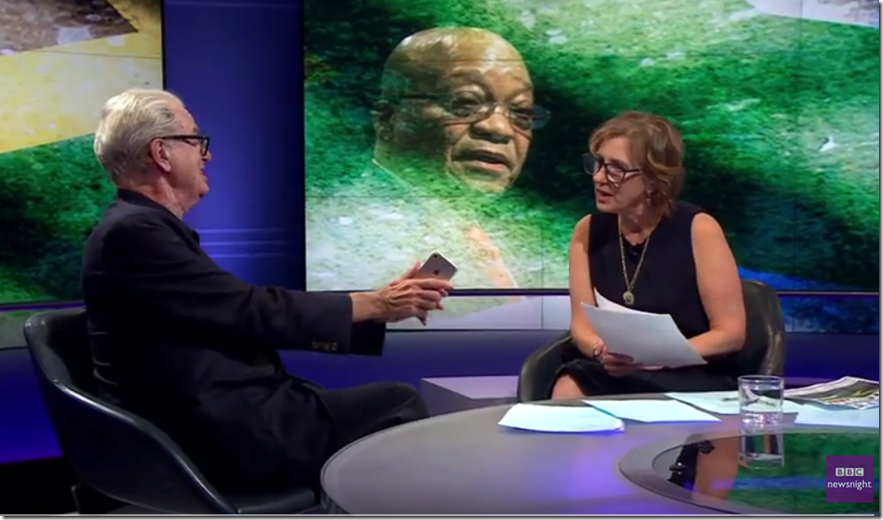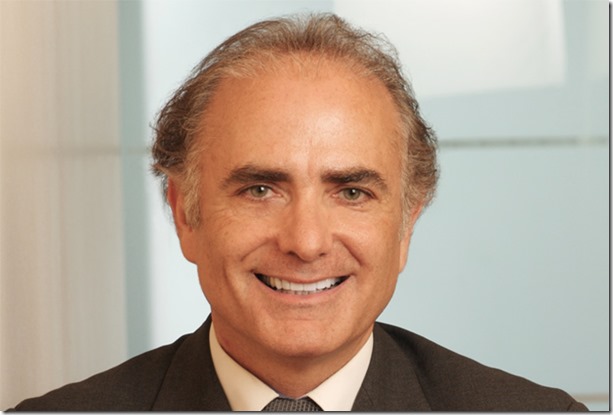Lord Bell: Loud Cell + Lousy Sell = Interview Hell
Some media disaster posts write themselves.
Lord Timothy Bell—co-founder of one of the UK’s largest PR firms, Bell Pottinger—is no stranger to controversy. His firm has engaged in propaganda campaigns and boasts a controversial client list that, according to The Guardian, includes:
The Pinochet Foundation; Syria’s first lady, Asma al-Assad; the governments of Bahrain and Egypt; Oscar Pistorius, after he was charged with murder; FW de Klerk, when he ran against Nelson Mandela for president; and Alexander Lukashenko, the Belarusian dictator.
But it’s his namesake firm’s work in South Africa that led to the type of disastrous press that PR firms are paid to avoid — and that may doom the firm. Here’s a summary from The Guardian:
Bell Pottinger, one of the City’s leading public relations agencies, has been expelled from the industry’s trade association after an investigation found its secret campaign to stir up racial tensions in South Africa to be the worst breach of ethics in its history.
The Public Relations and Communications Association said Bell Pottinger was unethical and unprofessional, had brought the industry into disrepute and has banned the firm from its membership for at least five years.
The punishment, unprecedented for a firm of Bell Pottinger’s size, was handed down after the PRCA investigated a complaint from South Africa’s main opposition party that the PR firm sought to stir up anger about “white monopoly capital” and the “economic apartheid” in South Africa.
Lord Bell went on BBC’s Newsnight earlier this week, where he proceeded to give one of the more bizarre interviews I’ve seen.
Where to begin?
The cell phone that rang twice during his interview?
Thrusting his phone toward the anchor to show her something on the screen?
The blatant contradiction at the beginning of the interview, in which he claimed that he immediately said his firm needed to turn down the business, even though he wrote an email that appeared to show the direct opposite?
Playing the victim by saying, “You can attack me all you like” and then attacking the press for pursuing a story?
“This is 18 months ago, people write stuff 18 months later, journalists write stuff 18 months later, and I am supposed to react?”
I would assume that Lord Bell’s only purpose in accepting this interview was to share his side of the story and enhance his personal reputation. If those were his goals, he failed miserably.
More than anything else in reputational crises, audiences judge the person in the center of the storm using a few basic and unspoken questions:
- Does this person get it?
- Do they take responsibility for their actions and role?
- Are they capable of fixing the problem?
- Are they credible?
Lord Bell went zero-for-four on those counts, calling into question why he accepted the interview at all.
Editor’s note: Lord Bell mentioned that he had a stroke recently. It’s impossible for me to know whether that played a role in his judgment in accepting this interview or for his tone during it. However, he seemed cogent when discussing his previous work and recalled many details — and for those reasons, plus his role in a major controversy, it seems fair to critique his appearance.
h/t @julietmannUK
More than 101 tips (including “turn your cell phone off!”) are in The Media Training Bible. Read a free excerpt below.




Agree entirely – and for a (former) top PR to make those basic mistakes is gobsmacking. If I was his PR I would have absolutely advised against doing an interview – let alone such a high profile one- in the first place.
Only note… my shout out… it is: @julietmannUK – best wishes, JM